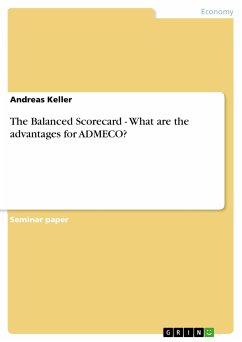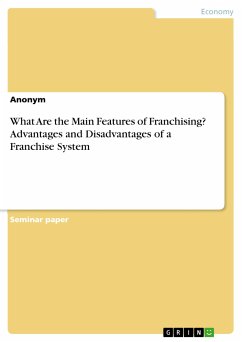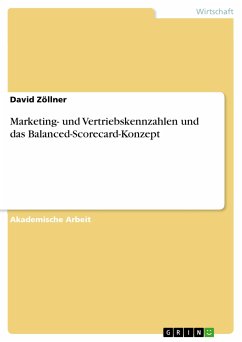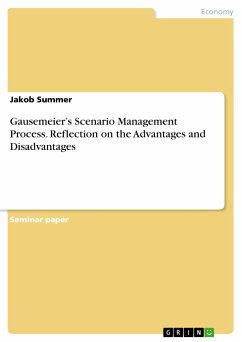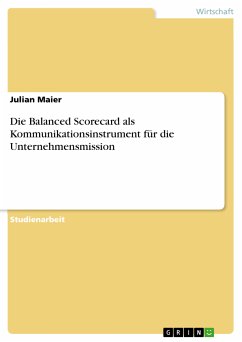Seminar paper from the year 2003 in the subject Business economics - Offline Marketing and Online Marketing, grade: 1.1, University of Strathclyde, language: English, abstract: The Balanced Scorecard (BSC) was first described in the early 1990’s (Kaplan,Norton,1992i) and is a widely adopted management framework combining financial measures with non-financial ones in a single frame, transforming the company’s mission and strategy into tangible objectives and measurements. It is not directed at controlling but deliberately sets out to provide a system of communication, information and learning to equip small or large organisations with a strategic framework empowering them to link today’s action with tomorrow goals. The BSC focuses on key measurements, aligning the company with its business units and the overall corporate strategy. A 2001 survey amongst European companies (Press Information Schweizii) confirms the Balanced Scorecard’s role as the leading performance management tool available. It further indicated that 50% of the European companies believe that applying the Balanced Scorecard and linking it with the overarching strategy will ultimately increase shareholder value. If we turn to the concrete case of ADMECO, we find a clear acknowledgement that it needs more than just traditional financial measures to run its operation well. After all, managing the future means more than just knowing about the financial past and present, it means understanding operational factors better in order to drive future success. BSC provides an ideal framework for identifying these factors and unlocking hidden potential (McCunn,1998iii) since it recognises the impact a performance has in one area on another. As Kaplan and Norton originally put it (Kaplan,Norton,1996,p.21iv), if you can measure it, you can manage it!
Bitte wählen Sie Ihr Anliegen aus.
Rechnungen
Retourenschein anfordern
Bestellstatus
Storno

